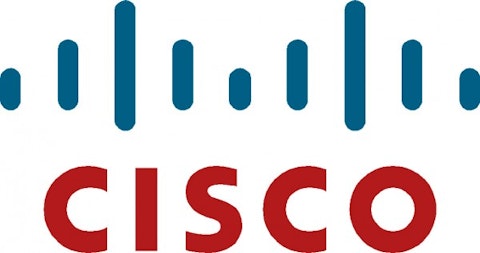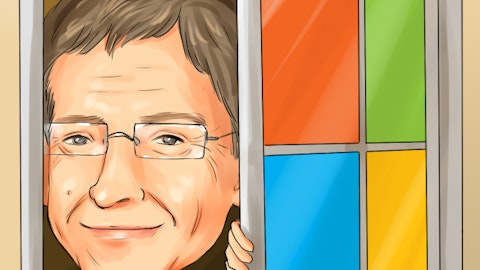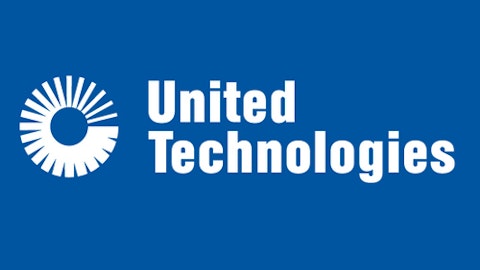In the future, your life will be connected. The word won’t mean what it does now, which is that you have a smartphone and a larger-form computer, and both are Internet-enabled. The gulf between your connected life today, and the world you’ll connect to in the future, will eventually seem as wide as the Atlantic Ocean before Columbus’ crossing. But don’t take my word for it. Listen to Cisco Systems, Inc. (NASDAQ:CSCO) — they’re the ones who decided that even an Internet of things was too small in scope. Cisco envisions an Internet of Everything, and they’re probably going to be right.
Everything is connected
Cisco Systems, Inc. (NASDAQ:CSCO)’s ambition sounds a bit like science fiction. The company estimates that 99.4% of all physical objects in the world remain unconnected — all but 10 billion out of 1.5 trillion things. The value (net profit) of connecting all of those things: $14.4 trillion.
Cisco Systems, Inc. (NASDAQ:CSCO) sees this potential developing in the next decade, by 2022. To put that incredible number in perspective, consider global GDP, which was $70 trillion when last assessed in 2011. If global GDP were to double again over the next decade, as it has since the end of the dot-com bubble, it would rely on the Internet of Everything for a fifth of that growth. Growth is already kicking in: Cisco projects $613 billion in corporate profit worldwide this year as the Internet becomes an Internet of Everything. That’s only a little more than half of what the world’s businesses could have if they better understood how to leverage this new trend.

Source: Alan Levine via Flickr .
Over the coming decade, much of this value will come from connecting workers through mobile collaboration and other methods ($2.2 trillion), making factories smarter ($2 trillion), and connected marketing and advertising efforts ($2 trillion). Manufacturing and retail will gobble up the lion’s share of this new value, as Cisco Systems, Inc. (NASDAQ:CSCO) expects 38% of that $14.4 trillion in new profit to flow to those two industries.
So, what does all of this mean?
General Electric Company (NYSE:GE) has been on the vanguard of connected industry with its “industrial Internet” initiative. General Electric Company (NYSE:GE) foresees sensor-equipped jet engines, utility turbines, and electric equipment feeding data to control centers that would track their status in real time, offering precise real-time adjustments that would have been unavailable to dumb machinery. Manufacturing, which is already highly automated, could be overseen with far greater control once everything on the assembly line has a link to everything else.
Hospitals would benefit enormously — chipped beds could offer the sort of full-body sensing accuracy previously restricted to expensive scanning machines, and with the added benefit of reporting back to a nurse in real time. You might even swallow chips in pill form to gather vital data, which might be relayed to your doctor for better diagnostics, preventing you from having to go to the hospital in the first place.
That primarily covers the “things” part of the Internet of Everything. Cisco Systems, Inc. (NASDAQ:CSCO) also expects benefits to accrue in data and processes, which are linked together — you can’t have better processes without more accurate data, and you can’t have more accurate data if your collection processes are out of date — and to people, who would benefit from the efficiencies offered by a connected world. If everything is connected, pretty much everyone could simply do their jobs remotely. Why go to the factory if the factory can run from your laptop? After a certain point, you might not need to go anywhere at all — you could control your entire house from the comfort of your favorite chair. That might be great news if you really liked the idea of the space cruise ship on Wall-E.





